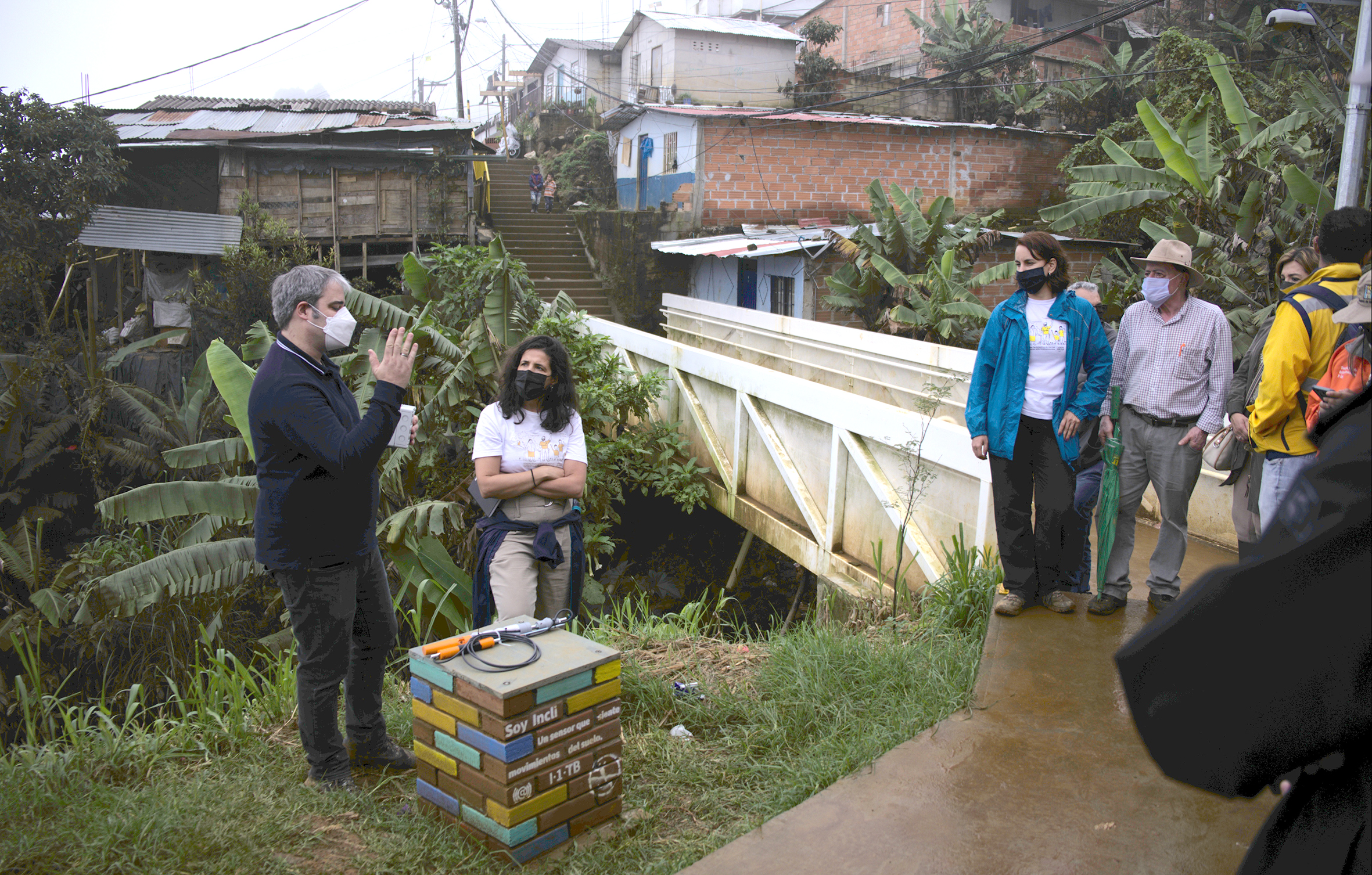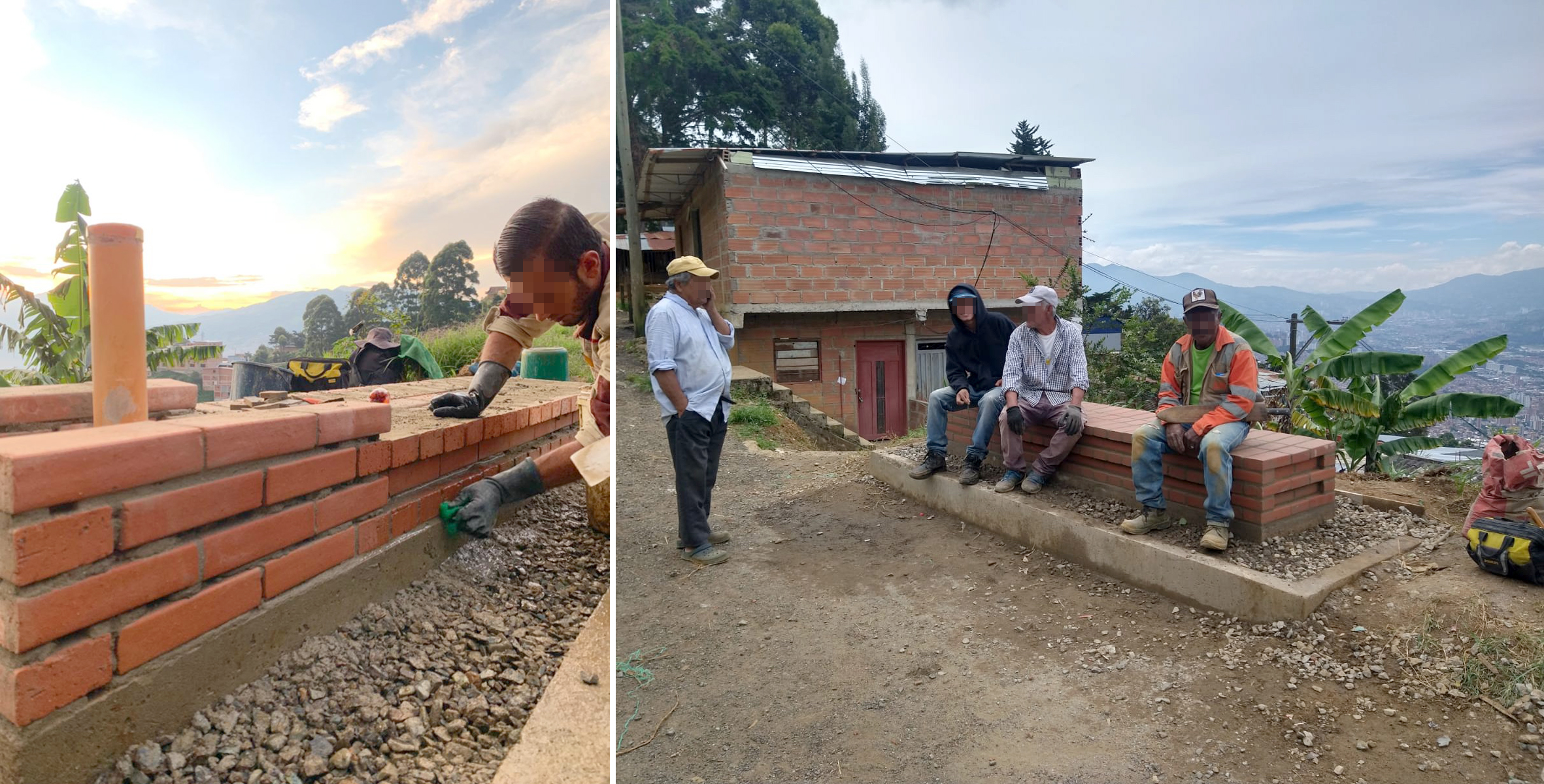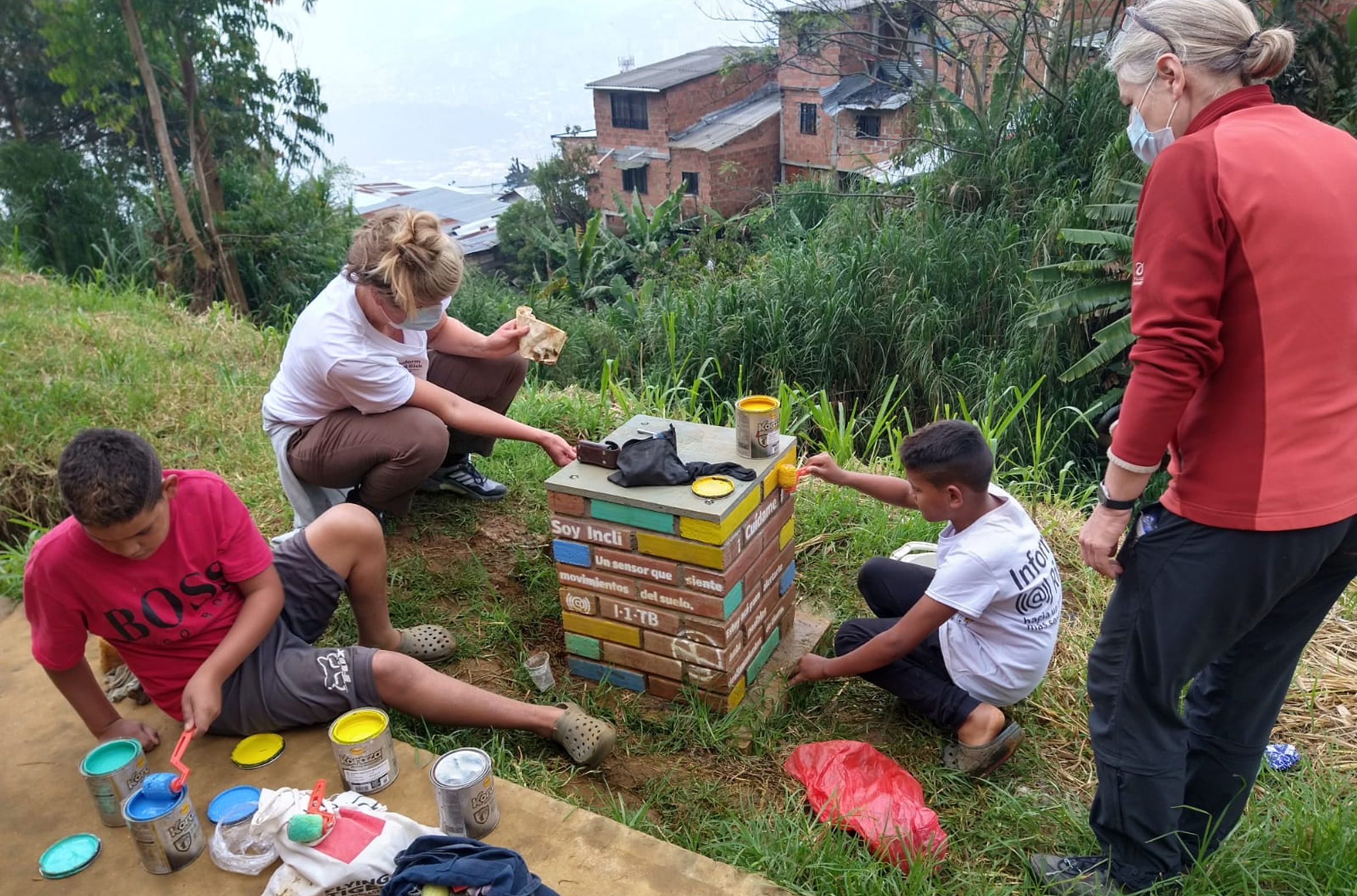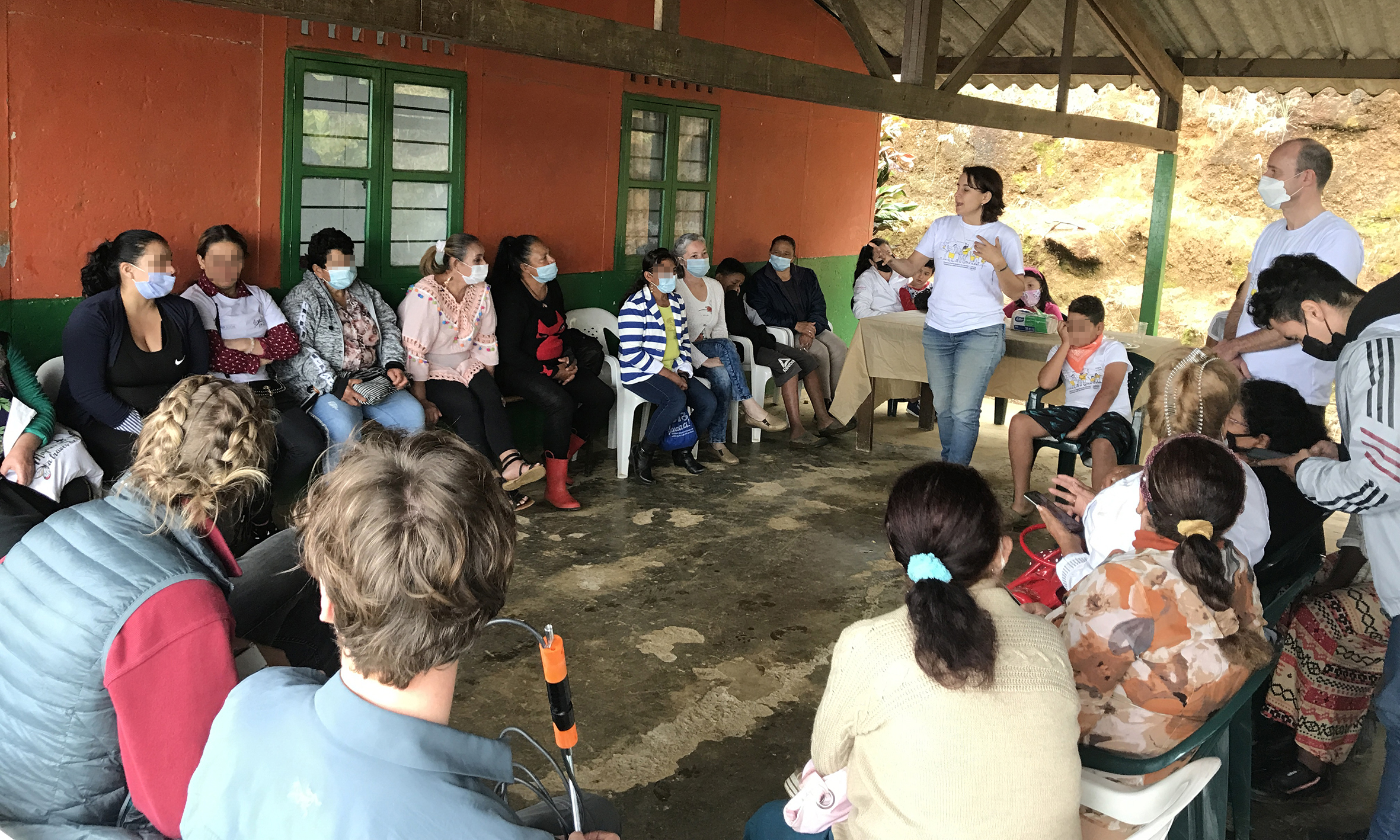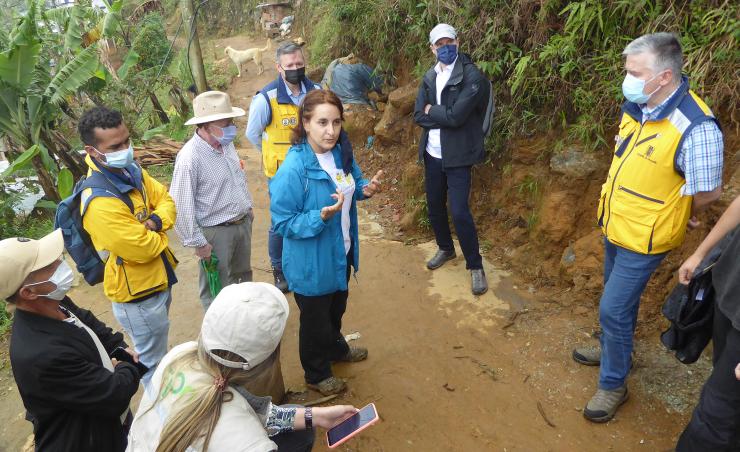

Inform@Risk: German project teams travel to Medellín to install the early warning system
In August last year, the test installation of the sensors and the construction of a 275 m long pilot line had started. In addition to the pandemic-related delays, construction activities proved challenging due to the difficult conditions in the steep terrain of the informal settlements. The test installation was coordinated by the Colombian partners on site during the pandemic, and decisions on the construction site could only be communicated online with the German partners. The main installation now follows on directly from the test installation and the experience gained from it. The team of geologists from TUM and AlpGeorisk took over the technical connections of the first sensors and the first gateway on site, which will carry out measurements of the sensor technology of the test system until the installation of the main system.
To integrate the sensors into the settlement, different prototypes were tested for marking and enclosing the sensors to protect the system and make it visible and understandable in the everyday life of the local people. The use of local masonry bricks has proven successful in producing small cuboids and benches that can be used for meeting and staying in the public space. Further sensors are to be installed on private residential buildings. The LUH landscape architecture team determined suitable locations on site and designed the colour markings of the enclosures together with the residents. Overall, it proved to be very important during the trip to be able to personally get in touch with the local people again in order to strengthen the relationship of trust and to advance the further development of the system in cooperation with the authorities of Medellín.
The early warning system is to be completed by spring 2022, at which time the technical optimisation of the software as well as trainings with the population for the case of alarm and evacuation will be carried out. The Inform@Risk project is designed as a real-life laboratory and learning system with cloud-based technology that enables data from numerous sensors to be processed and combined using "sensor fusion" methods. In addition, patterns based on "Machine Learning" (AI) are to be recognised in individual measurements in order to be able to distinguish natural slope movements from human influences. The combination of this new technology with local citizen participation has received positive feedback from different specialised authorities in Medellín. The project thus fits into the city's innovation strategy, which aims to combine digitalisation and social aspects more strongly in the future. For the planned handover of the system to the city of Medellín, further negotiations are currently being conducted and strategies for transferability to other urban areas are being developed.
